Enhancing observation skills Science Worksheets for 6-Year-Olds
7 filtered results
-
From - To
Explore our "Enhancing Observation Skills Science Worksheets for 6-Year-Olds," designed to ignite young minds with engaging activities. Our printable worksheets offer a variety of exercises that sharpen focus, encourage attention to detail, and foster curiosity about the natural world. These hands-on assignments help children develop critical observation skills essential for their budding scientific understanding. Whether it’s identifying patterns, observing changes, or recording findings, each worksheet transforms learning into a fun adventure. Ideal for parents and teachers, our resources support early education and inspire a lifelong love for science. Discover how our worksheets can enhance your child's cognitive development today!


Pollinator Positions Worksheet
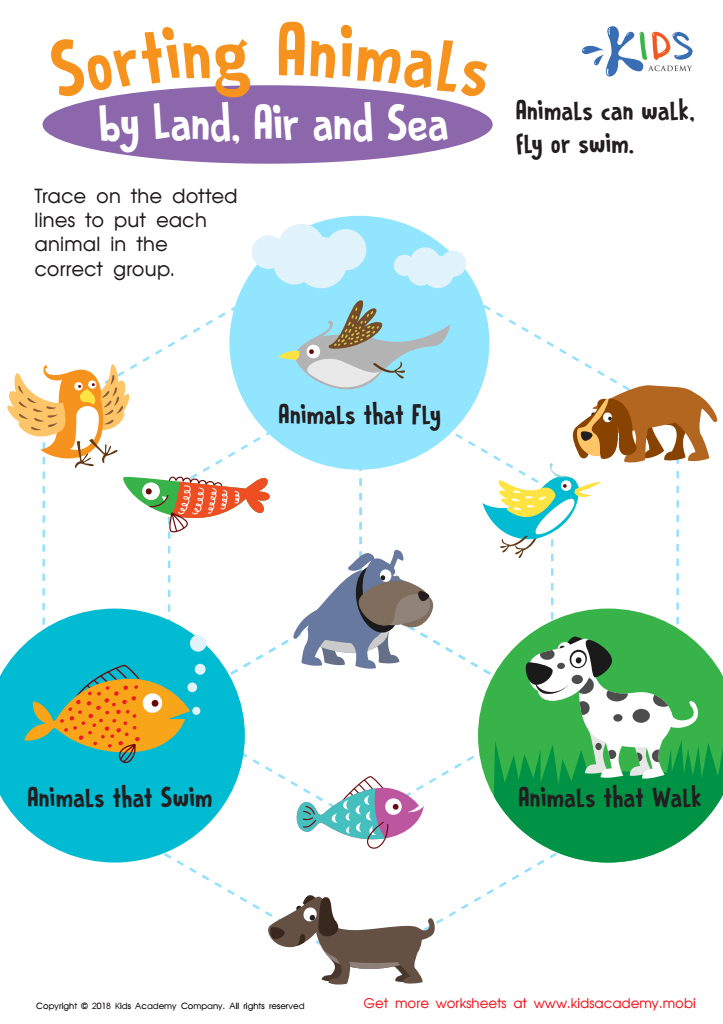

Sorting Animals by Land, Air and Sea Worksheet
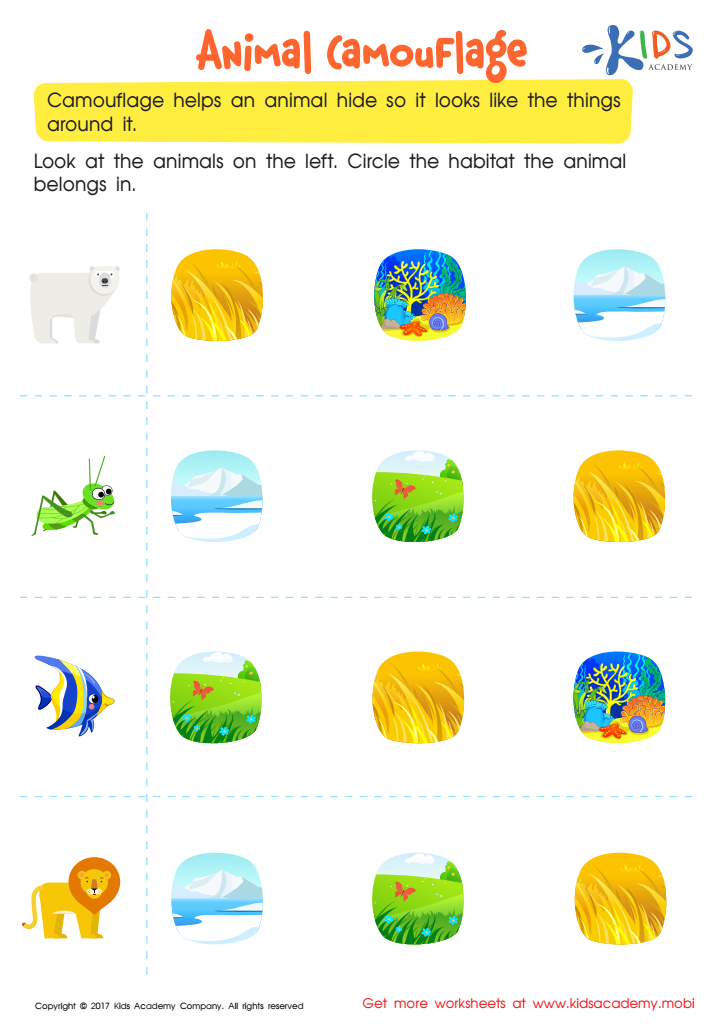

Animal Camouflage Worksheet
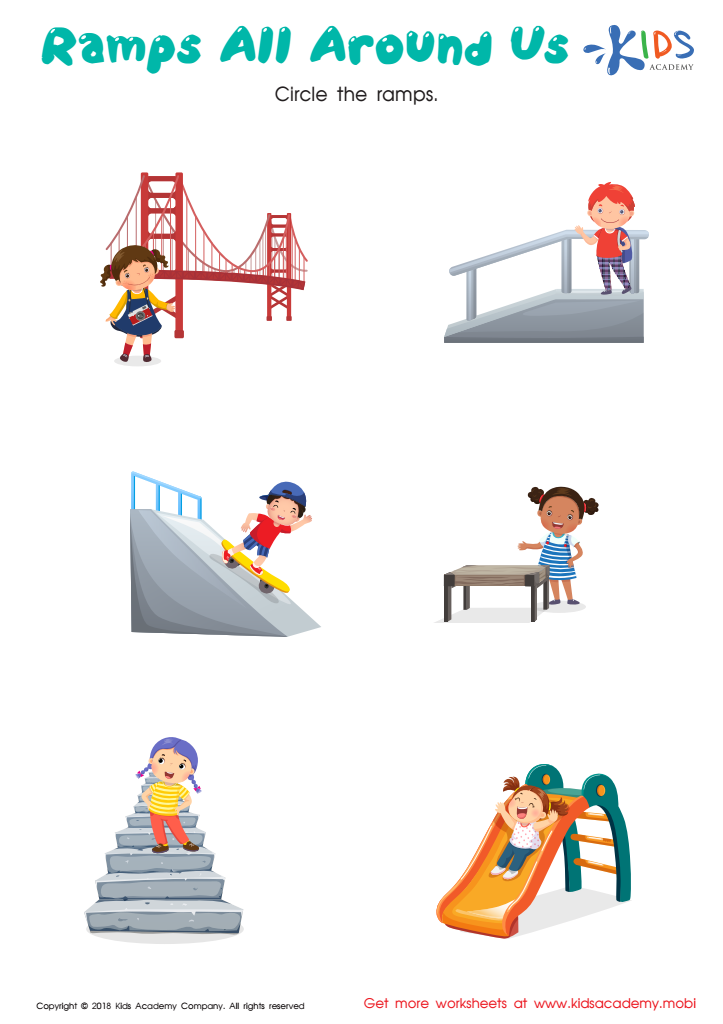

Ramps All Around us Worksheet
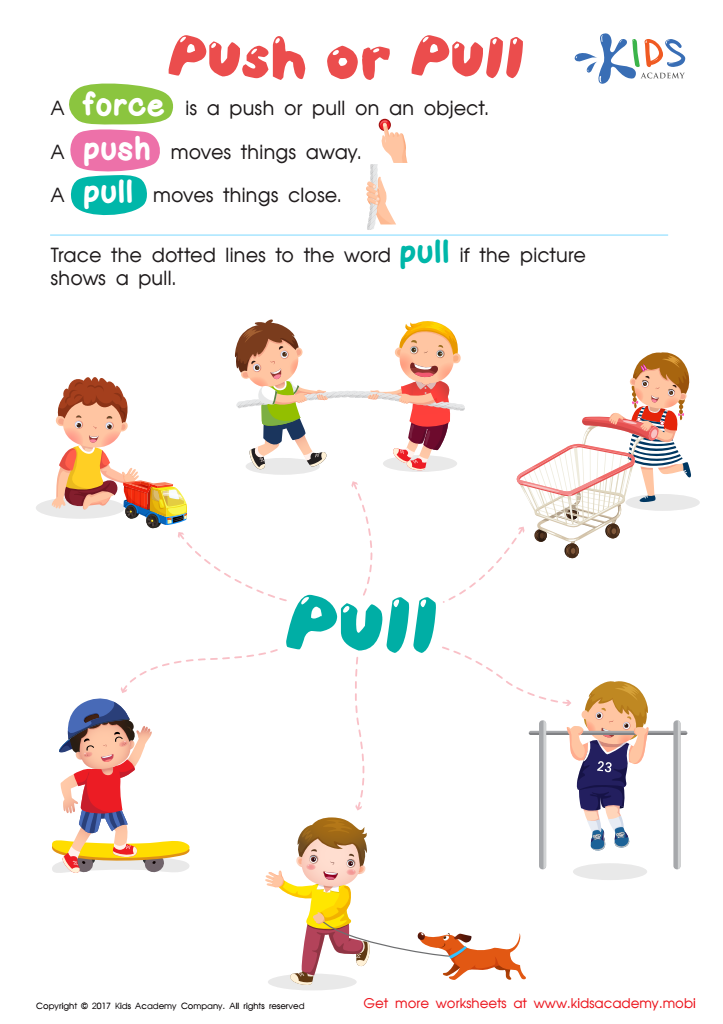

Pull or Push Worksheet
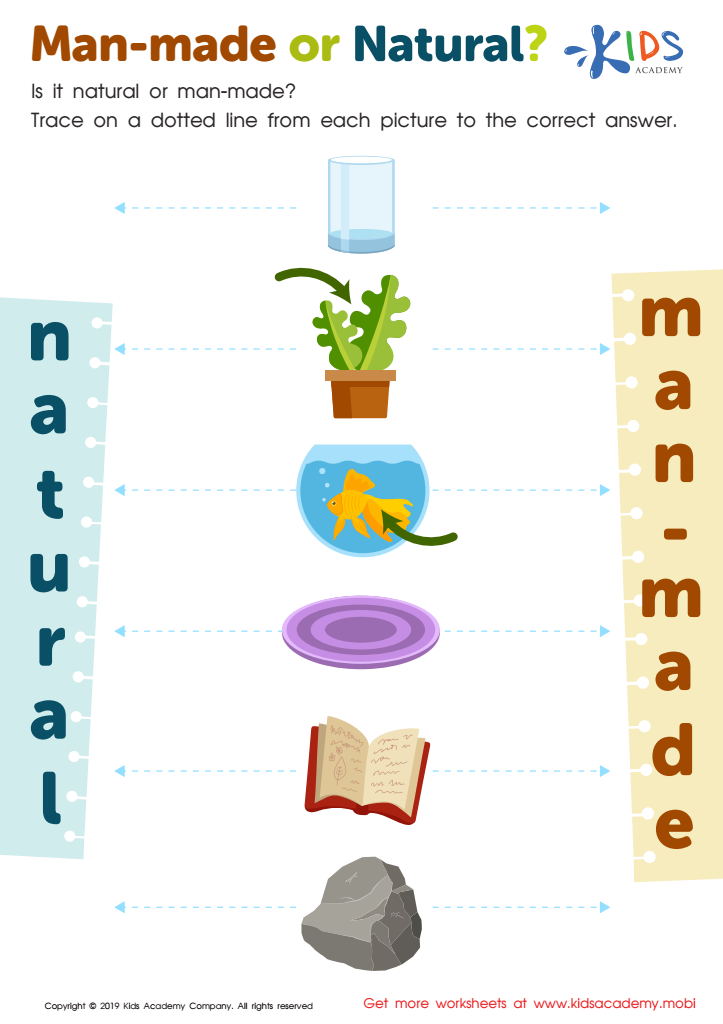

Man-Made or Natural? Worksheet
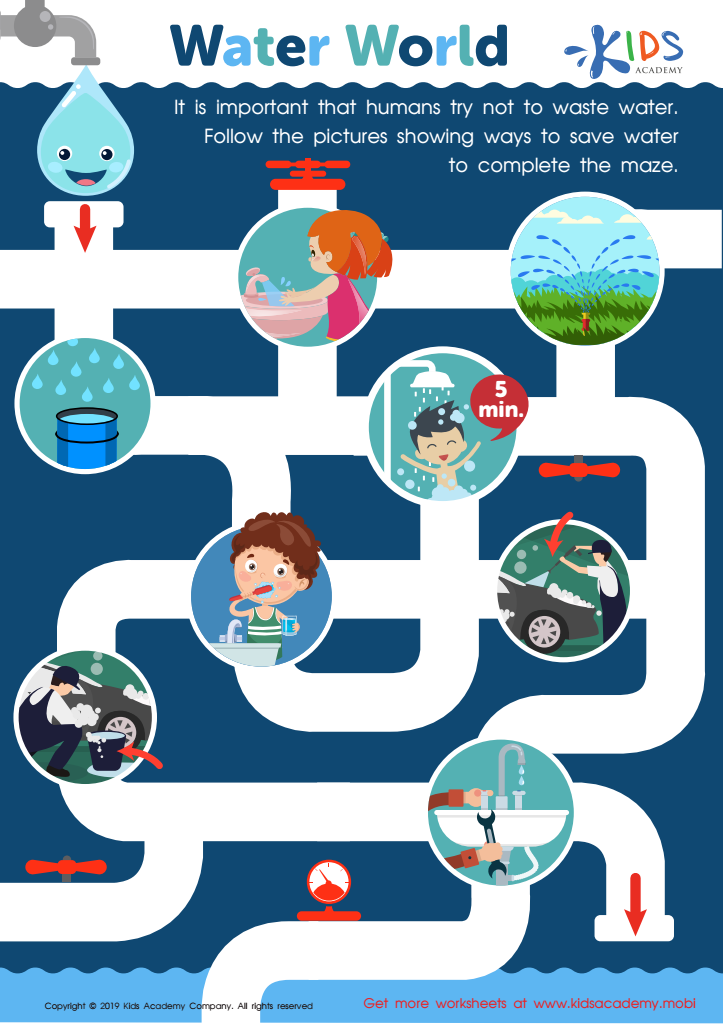

Water World Worksheet
Parents and teachers should prioritize enhancing observation skills in science for 6-year-olds because these foundational skills are critical for cognitive development and fostering a lifelong love of learning. At this age, children are naturally curious about the world around them. By cultivating their ability to observe carefully, we help them build important intellectual habits such as attention to detail, critical thinking, and curiosity.
Observation skills are the bedrock of scientific inquiry. They enable children to notice patterns, make predictions, and engage in problem-solving. By developing these skills early, children can better understand and engage with scientific concepts introduced later in their education. Moreover, honing these skills can improve their performance across other subjects, such as reading and math, by promoting meticulousness and attention to detail.
Furthermore, enhancing observation skills encourages mindfulness and patience, key qualities for both academic success and personal development. Whether it's noticing the different shapes of leaves or how shadows change throughout the day, these activities make learning interactive and enjoyable, laying the groundwork for a positive attitude toward science.
Lastly, strong observation skills contribute to social-emotional learning. They help children become more aware of their surroundings and, as a result, more empathetic and attuned to the needs and emotions of others, fostering better interpersonal relationships.
 Assign to My Students
Assign to My Students















